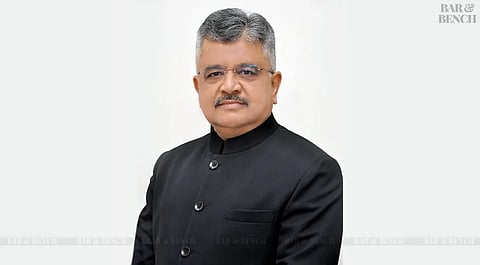
- Latest Legal News
- News
- Dealstreet
- Viewpoint
- Columns
- Interviews
- Law School
- Legal Jobs
- हिंदी
- ಕನ್ನಡ

Solicitor General of India Tushar Mehta on Sunday said that the system of allowing litigants to choose their arbitrators has created serious concerns regarding integrity in arbitration, and that parliament has to step in and address the issue.
Explaining why confidence in arbitration has eroded, he said that it has become possible to identify the law firm that has engaged an arbitrator simply by looking at the arbitrator’s name.
“Those who are practicing in the field of arbitration tell me that from the name of certain arbitrators, you can find out the firm which must have engaged him and the litigant which must be the client of that firm,” Mehta said.
He suggested that a possible check would be to bring in a law making it mandatory for all arbitral awards to be published on a single platform.
“You will come to know which company engages which arbitrator very frequently and which lawyer represents that company before that arbitrator almost frequently. This would work as a check."
The Solicitor General was speaking at a two-day conference on arbitration law organised by the Gujarat High Court in Ahmedabad on September 21.
He began by highlighting the lack of any serious empirical study on whether stakeholders were satisfied with arbitration in India. He referred to the Central government’s 2020 policy decision as per which government contracts above ₹10 crore would not include arbitration clauses.
“It is an alarming decision and irrespective of any empirical data, it speaks volumes,” he said, adding that the government was already considering amendments to the Arbitration and Conciliation Act.
At the heart of the problem was the question of integrity of arbitrators, he said. Mehta argued that integrity could not be legislated, but the system could still create safeguards.
He recalled instances where “the integrity was not even doubtful” and said that this was why some corporations and statutory bodies preferred regular litigation over arbitration.
He reminded the audience that he had earlier told a Constitution Bench of the Supreme Court that government bodies do not enjoy a level playing field against private parties in arbitration.
SG Mehta also criticised the way arbitral proceedings were often adjourned because arbitrators were overburdened.
“Earlier, we had only one category of professionals whose dates were problematic and they were film stars. Now the second category is arbitrators,” he remarked, adding that adjournments stretched matters by six months and forced parties to seek extensions under Section 29A of the Act.
Turning to the law, he underlined the difficulty caused by the vague wording of Section 34, which governs challenges to arbitral awards. Terms like 'patent illegality' and 'perversity' were inherently subjective, he opined.
He proposed the idea of creating a special tribunal dedicated to Section 34 matters to ease the burden on courts, though he cautioned that tribunalisation has not worked well in India so far.
On technology, Mehta raised concerns about the growing use of artificial intelligence in arbitration. Referring to foreign cases where ChatGPT had allegedly been used to draft awards, he said this undermined the requirement of a reasoned award.
“Arbitral award has to be a reasoned award and the word 'reasoned award' would necessarily mean reason of the arbitrator. If you outsource your core judicial function, the award suffers from patent illegality,” he warned.
Mehta concluded by calling for institutional reforms and a cultural shift in arbitration practice to ensure that parties regain confidence in it as a credible alternative to conventional litigation.